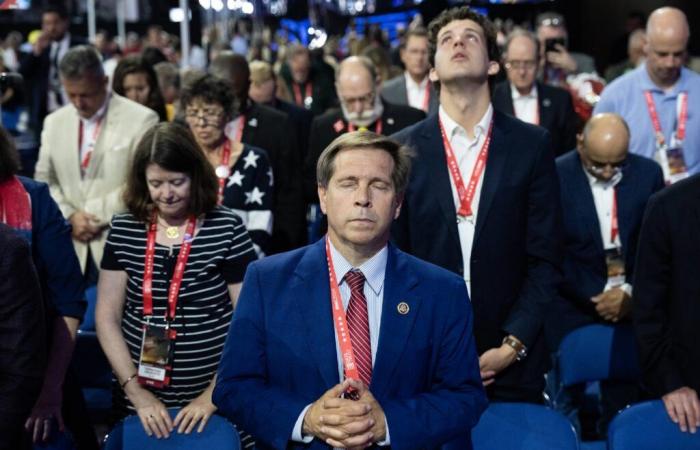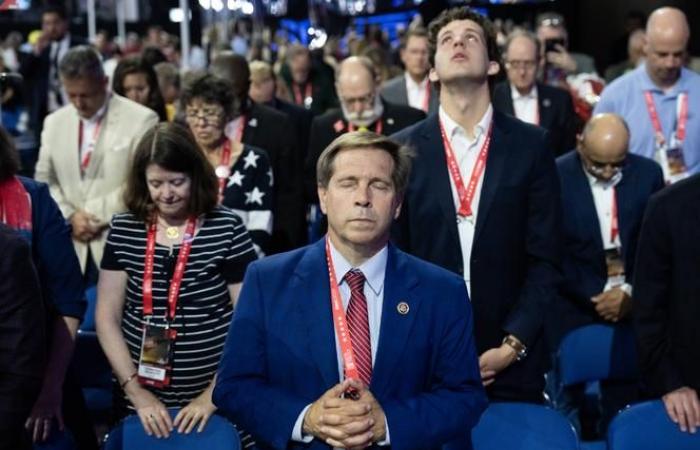In February 2024, three convoys presenting themselves as “the army of God” converged on the border between the United States and Mexico to denounce immigration, praying, improvising baptisms and displaying pro-Trump banners, under the eye of the country's cameras. As this scene attests, in recent years, “Christian nationalism” has asserted itself loudly in the American media and political landscape. And the presidential campaign which resulted in the victory of Donald Trump only reinforced the visibility of this movement across the Atlantic.
Some even wonder “if a new wave of believers is not going to take democracy with it to the United States”reported, in April 2024, USA Todayciting “a Christian nationalism that suddenly seems omnipresent”. But what does this current really weigh? Is it a monolithic movement? On the occasion of the inauguration of Donald Trump, the historian and sociologist Sébastien Fath, specialist in new forms of Christianity, analyzes this ideology which manages to appeal to a large part of public opinion.
-You have 89.55% of this article left to read. The rest is reserved for subscribers.







